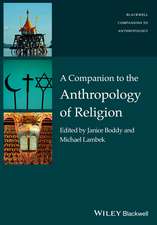Rising Anthills: African and African American Writing on Female Genital Excision, 1960–2000: Women in Africa and the Diaspora
Autor Elisabeth Bekersen Limba Engleză Paperback – 5 aug 2010
Female genital excision, or the ritual of cutting the external genitals of girls and women, is undoubtedly one of the most heavily and widely debated cultural traditions of our time. By looking at how writers of African descent have presented the practice in their literary work, Elisabeth Bekers shows how the debate on female genital excision evolved over the last four decades of the twentieth century, in response to changing attitudes about ethnicity, nationalism, colonialism, feminism, and human rights.
Rising Anthills (the title refers to a Dogon myth) analyzes works in English, French, and Arabic by African and African American writers, both women and men, from different parts of the African continent and the diaspora. Attending closely to the nuances of language and the complexities of the issue, Bekers explores lesser-known writers side by side with such recognizable names as Ngugi wa Thiong’o, Flora Nwapa, Nawal El Saadawi, Ahmadou Kourouma, Calixthe Beyala, Alice Walker, and Gloria Naylor. Following their literary discussions of female genital excision, she discerns a gradual evolution—from the 1960s, when writers mindful of its communal significance carefully “wrote around” the physical operation, through the 1970s and 1980s, when they began to speak out against the practice and their societies’ gender politics, to the late 1990s, when they situated their denunciations of female genital excision in a much broader, international context of women’s oppression and the struggle for women’s rights.
Rising Anthills (the title refers to a Dogon myth) analyzes works in English, French, and Arabic by African and African American writers, both women and men, from different parts of the African continent and the diaspora. Attending closely to the nuances of language and the complexities of the issue, Bekers explores lesser-known writers side by side with such recognizable names as Ngugi wa Thiong’o, Flora Nwapa, Nawal El Saadawi, Ahmadou Kourouma, Calixthe Beyala, Alice Walker, and Gloria Naylor. Following their literary discussions of female genital excision, she discerns a gradual evolution—from the 1960s, when writers mindful of its communal significance carefully “wrote around” the physical operation, through the 1970s and 1980s, when they began to speak out against the practice and their societies’ gender politics, to the late 1990s, when they situated their denunciations of female genital excision in a much broader, international context of women’s oppression and the struggle for women’s rights.
Din seria Women in Africa and the Diaspora
-
 Preț: 270.56 lei
Preț: 270.56 lei -
 Preț: 163.65 lei
Preț: 163.65 lei -
 Preț: 205.65 lei
Preț: 205.65 lei -
 Preț: 232.09 lei
Preț: 232.09 lei -
 Preț: 432.86 lei
Preț: 432.86 lei -
 Preț: 232.29 lei
Preț: 232.29 lei - 23%
 Preț: 478.76 lei
Preț: 478.76 lei -
 Preț: 235.78 lei
Preț: 235.78 lei -
 Preț: 223.77 lei
Preț: 223.77 lei -
 Preț: 208.49 lei
Preț: 208.49 lei - 23%
 Preț: 473.13 lei
Preț: 473.13 lei - 23%
 Preț: 477.99 lei
Preț: 477.99 lei - 23%
 Preț: 476.36 lei
Preț: 476.36 lei - 14%
 Preț: 185.36 lei
Preț: 185.36 lei - 21%
 Preț: 378.04 lei
Preț: 378.04 lei -
 Preț: 182.07 lei
Preț: 182.07 lei -
 Preț: 230.50 lei
Preț: 230.50 lei -
 Preț: 199.67 lei
Preț: 199.67 lei
Preț: 209.30 lei
Nou
Puncte Express: 314
Preț estimativ în valută:
40.05€ • 43.49$ • 33.65£
40.05€ • 43.49$ • 33.65£
Carte disponibilă
Livrare economică 02-16 aprilie
Preluare comenzi: 021 569.72.76
Specificații
ISBN-13: 9780299234942
ISBN-10: 0299234940
Pagini: 274
Dimensiuni: 152 x 229 x 20 mm
Greutate: 0.43 kg
Ediția:1
Editura: University of Wisconsin Press
Colecția University of Wisconsin Press
Seria Women in Africa and the Diaspora
ISBN-10: 0299234940
Pagini: 274
Dimensiuni: 152 x 229 x 20 mm
Greutate: 0.43 kg
Ediția:1
Editura: University of Wisconsin Press
Colecția University of Wisconsin Press
Seria Women in Africa and the Diaspora
Recenzii
“A major contribution to African literary scholarship.”—Obioma Nnaemeka, Indiana University-Purdue University, Indianapolis
“A profound contribution to the task of complicating and problematizing the critical issue of female genital excision.”—Stanlie James and Aili Mari Tripp, Series Editors
Notă biografică
Elisabeth Bekers is lecturer in British and postcolonial literatures at the Free University of Brussels (VUB) and research affiliate at the University of Antwerp.
Cuprins
Preface
Analyzed Works
Introduction: Writing Women's Rites and Rights
Dissecting Anthills of Insurrection
Traditional Discourses of Female Genital Excision
Colonial and Anticolonial Discourses of Female Genital Excision
Feminist and Human Rights Discourses of Female Genital Excision
Postcolonial Discourses of Female Genital Excision
Three "Generations" of Literary "Dissections" of Female Genital Excision
Chapter 1: Denunciations of Colonization and Hesitant Feminist Criticism in Early Literary "Circumscriptions" of Female Genital Excision (1963–1974)
From Gender Scripts to Pamphlets of Ethnicity: Reconstructions of Excised Women's Bodies in the Kenyan Struggle for Independence
Two Exceptional Women's Alternative Gender Scripts
The First Generation: Cultural Ambassadors, Cautious Critics
Chapter 2: Growing Feminist Disenchantment in Literary Explorations of Female Genital Excision around the UN Decade for Women (1968–1988)
The Immobile Women's Moving Narratives of Kourouma, Farah, El Saadawi, and Maïga Ka
The Captive/ating Women Warriors of Farah, El Saadawi, Beyala, and Rifaat
The Second Generation: Resistance against National and Gender Oppression
Chapter 3: The Globalization of the Literary Debate on Female Genital Excision at the Close of the Twentieth Century (1982–1998)
African American Women Writing Female Genital Excision
Other Women of African Descent Writing Female Genital Excision
The Third Generation: Affinities across the Diaspora . . . and through Time
Conclusion
Notes
References
Index
Analyzed Works
Introduction: Writing Women's Rites and Rights
Dissecting Anthills of Insurrection
Traditional Discourses of Female Genital Excision
Colonial and Anticolonial Discourses of Female Genital Excision
Feminist and Human Rights Discourses of Female Genital Excision
Postcolonial Discourses of Female Genital Excision
Three "Generations" of Literary "Dissections" of Female Genital Excision
Chapter 1: Denunciations of Colonization and Hesitant Feminist Criticism in Early Literary "Circumscriptions" of Female Genital Excision (1963–1974)
From Gender Scripts to Pamphlets of Ethnicity: Reconstructions of Excised Women's Bodies in the Kenyan Struggle for Independence
Two Exceptional Women's Alternative Gender Scripts
The First Generation: Cultural Ambassadors, Cautious Critics
Chapter 2: Growing Feminist Disenchantment in Literary Explorations of Female Genital Excision around the UN Decade for Women (1968–1988)
The Immobile Women's Moving Narratives of Kourouma, Farah, El Saadawi, and Maïga Ka
The Captive/ating Women Warriors of Farah, El Saadawi, Beyala, and Rifaat
The Second Generation: Resistance against National and Gender Oppression
Chapter 3: The Globalization of the Literary Debate on Female Genital Excision at the Close of the Twentieth Century (1982–1998)
African American Women Writing Female Genital Excision
Other Women of African Descent Writing Female Genital Excision
The Third Generation: Affinities across the Diaspora . . . and through Time
Conclusion
Notes
References
Index
Descriere
Female genital excision, or the ritual of cutting the external genitals of girls and women, is undoubtedly one of the most heavily and widely debated cultural traditions of our time. By looking at how writers of African descent have presented the practice in their literary work, Elisabeth Bekers shows how the debate on female genital excision evolved over the last four decades of the twentieth century, in response to changing attitudes about ethnicity, nationalism, colonialism, feminism, and human rights.
Rising Anthills (the title refers to a Dogon myth) analyzes works in English, French, and Arabic by African and African American writers, both women and men, from different parts of the African continent and the diaspora. Attending closely to the nuances of language and the complexities of the issue, Bekers explores lesser-known writers side by side with such recognizable names as Ngugi wa Thiong’o, Flora Nwapa, Nawal El Saadawi, Ahmadou Kourouma, Calixthe Beyala, Alice Walker, and Gloria Naylor. Following their literary discussions of female genital excision, she discerns a gradual evolution—from the 1960s, when writers mindful of its communal significance carefully “wrote around” the physical operation, through the 1970s and 1980s, when they began to speak out against the practice and their societies’ gender politics, to the late 1990s, when they situated their denunciations of female genital excision in a much broader, international context of women’s oppression and the struggle for women’s rights.
Rising Anthills (the title refers to a Dogon myth) analyzes works in English, French, and Arabic by African and African American writers, both women and men, from different parts of the African continent and the diaspora. Attending closely to the nuances of language and the complexities of the issue, Bekers explores lesser-known writers side by side with such recognizable names as Ngugi wa Thiong’o, Flora Nwapa, Nawal El Saadawi, Ahmadou Kourouma, Calixthe Beyala, Alice Walker, and Gloria Naylor. Following their literary discussions of female genital excision, she discerns a gradual evolution—from the 1960s, when writers mindful of its communal significance carefully “wrote around” the physical operation, through the 1970s and 1980s, when they began to speak out against the practice and their societies’ gender politics, to the late 1990s, when they situated their denunciations of female genital excision in a much broader, international context of women’s oppression and the struggle for women’s rights.














